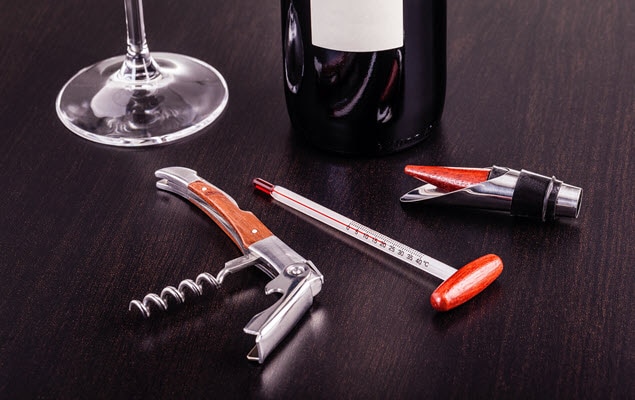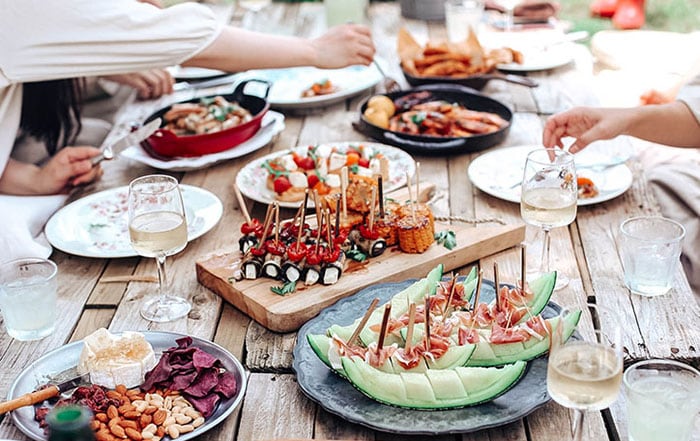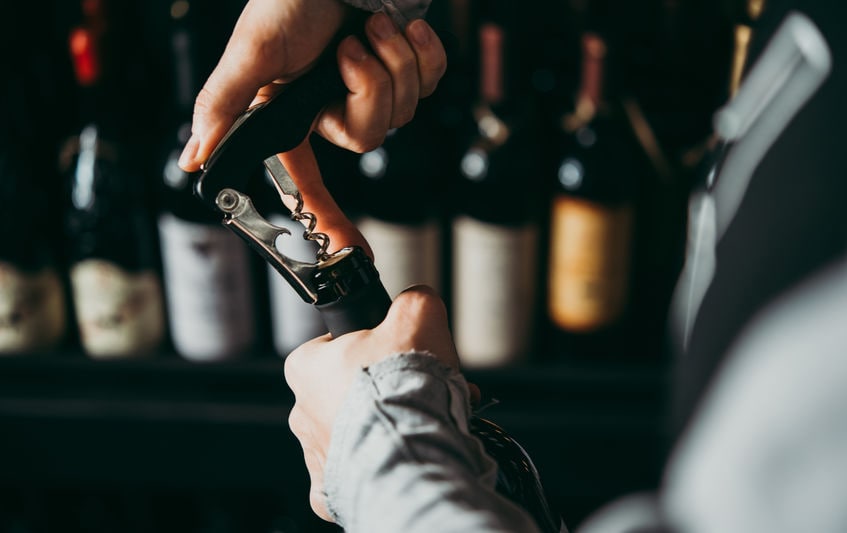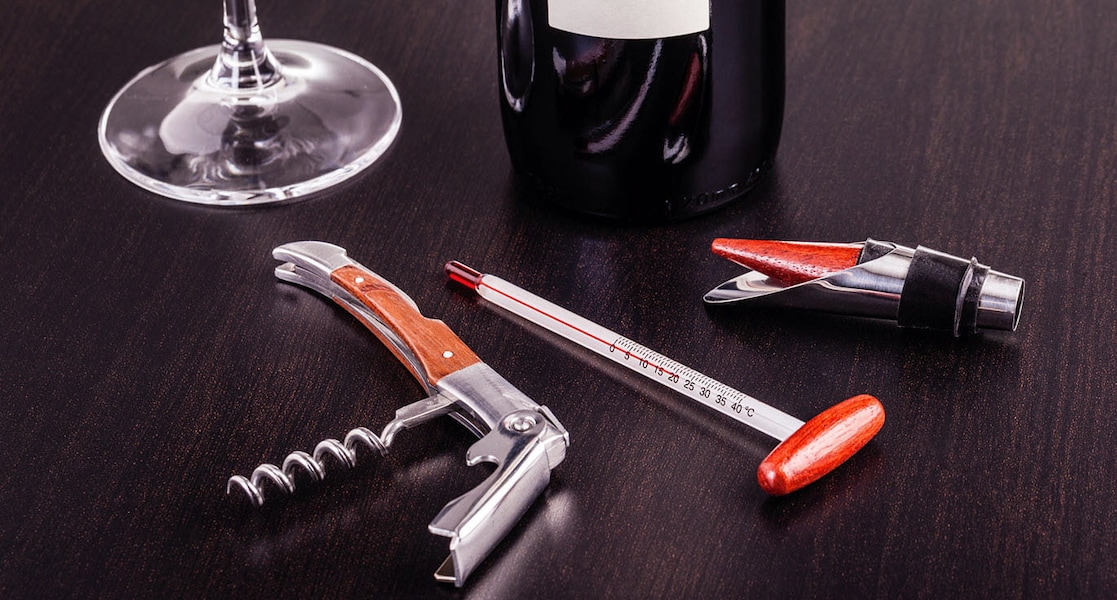
On one hand, a Chardonnay served at 5 degrees Celsius instead of 11-12 degrees Celsius will be stripped of all its enchanting aromas and flavours, while serving red wines at room temperature in Australia (24-30 degrees Celsius) is a common mistake.
When the French recommend serving your full-bodied reds “chambrés” (at ambient room temperature), they’re actually referring to room temperature as it was in European dining rooms in the medieval times before central heating existed, so 15-18 degrees Celsius.
Served at 25 degrees Celsius, red wine will lose all its finesse and freshness to an overpowering sensation of alcohol. This is why it makes perfect sense to give your reds some time to cool down in the fridge before service (20-25 min). Of course, if you store your wine in a wine cabinet at cellaring temperature (12 degrees Celsius), this is no longer necessary: just take it out 15 minutes prior to serving. If in doubt though, it’s always better to serve your reds a little cooler, as you can always warm up the glass in the palm of your hand.
For whites, 2-3 hours in the fridge is perfect, but no more, as white wines should never be served under 5 degrees Celsius; if they’re coming straight out of a 2 degrees Celsius fridge, the only thing your taste buds will ever register is acidity.
So rather than leaving a bottle in the fridge as you leave for work in the morning (so you can uncork it as soon as your work day ends), fill a bucket with ice and cold water when you get home, drop in your white wine and it will be at perfect serving temperature in no time: that first sip will be all the more rewarding served at the right temperature.
NOTE: If you have precise control over the serving temperature with the help of a wine serving cabinet, aim for 2 degrees Celsius less than what is recommended, so that the wine will be in the right temperature range during the entire meal.
Table describing serving temperatures of different styles of wine
Each wine style has an ideal serving temperature. Served below its ideal temperature, tannins will be harsher and acidity will be stronger. Served above its ideal temperature, aromas are stripped of their youthfulness and hidden by the sensation of alcohol.- Full-bodied reds (Bordeaux, Napa Cabs, Shiraz, Zinfandel) : 17-19 degrees Celsius
- Lighter-bodied reds (Burgundies, Pinot Noir, Chianti) : 14-16 degrees Celsius
- Light, young and fruity reds (Beaujolais, Merlot) : 12-14 degrees Celsius
- Full-bodied whites (Grand Cru Burgundies, Chardonnays) : 12-13 degrees Celsius
- Roses, Semillon, Viognier, Sauternes : 10-12 degrees Celsius
- Riesling, Verdelho, Vintage Champagnes : 8-10 degrees Celsius
- Dessert wines: 7-8 degrees Celsius
- Sauvignon Blanc, Pinot Gris, Non Vintage Champagnes, Ice Wines : 6-8 degrees Celsius





